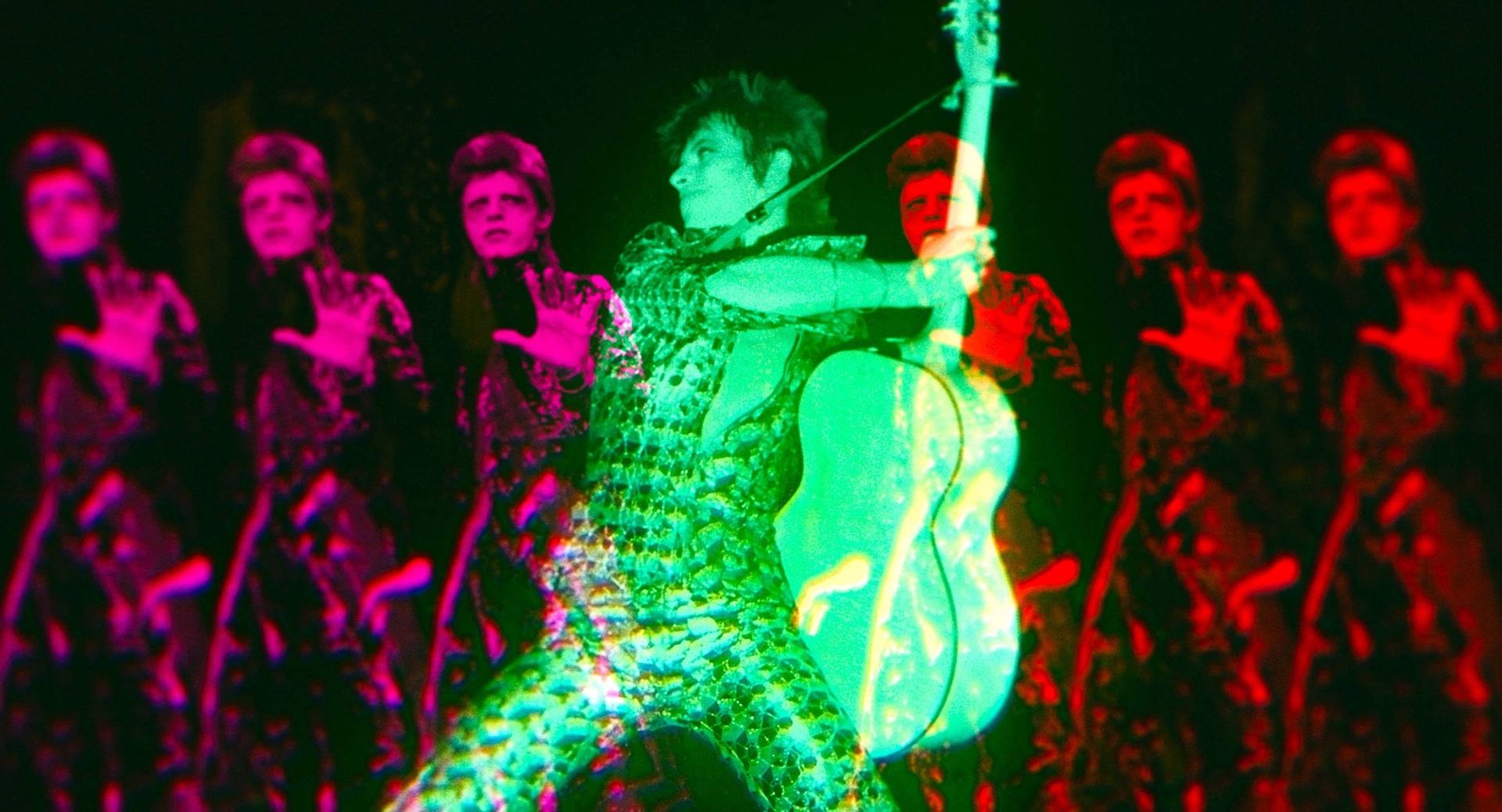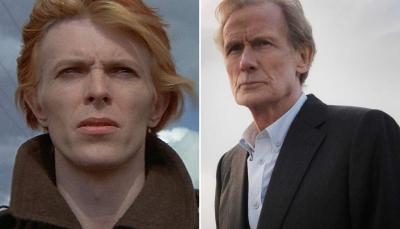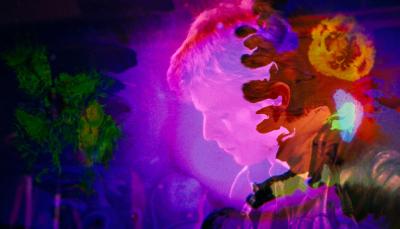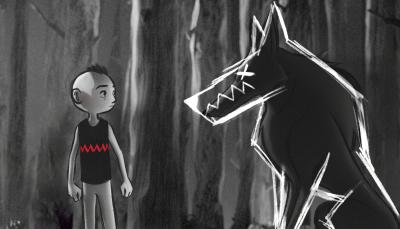'Moonage Daydream' is a Psychedelic David Bowie Odyssey
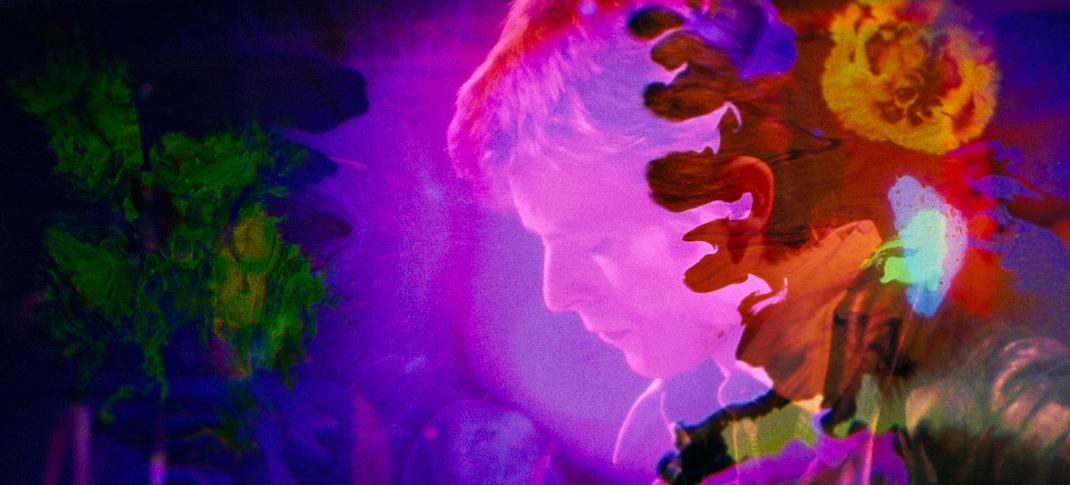
Think of your favorite incarnation of David Bowie. Is it the 70s androgynous alien rock god? The big-suited 80s positivity guru pop star? The darker, more cynical electronica Bowie of the mid-to-late 90s? The anxious, sometimes despairing artist of the 2000s? The introspective creator of the 2010s, looking into the void and facing his own mortality? The documentary Moonage Daydream (which opened in limited release in September 2022) is named for his 1971 song. It offers us a spectacle, a space-age mix-tape voyage through the works of a constantly evolving artist.
This visually stunning but emotionally spare musical exploration of Bowie and his philosophies on life and art values style more than substance – which is not to say that the film is hollow. This is a love letter to a transcendent music deity. The documentary doesn’t aim to be a traditional biography nor a beginner’s introduction to the near-mythological superstar. This is part concert film, thought experiment, music video, and spiritual quest.
Writer/director/editor Brett Morgen is a documentarian with multiple award wins, nominations, and a previous high-profile documentary on Kurt Cobain. Bowie is a cultural icon who made a permanent mark on the landscape in his nearly 50-year career. Morgen presupposes that you are aware of David Bowie’s meteoric stardom and that you love his music. Morgen approaches his film like experiential art, presenting a mesmerizing journey through sights and sound.
Bowie narrates in his own voice over a constant barrage of imagery. Audio clips are taken from decades of interviews, and the film features rare and archival footage of his fans, concerts, music videos, and his own film projects, as well as clips from some forty or more movies – a few that star Bowie, but most which are atmospheric fodder. (The clearances department must have had a mammoth task to accomplish.)
Moonage Daydream is designed to be watched on the big screen in a darkened theater, where you can surrender to its hypnotic spell and fall into its dreamy universe, so home viewers should go for the biggest screen they own. The experience of the film is hallucinatory. (Its wine pairing would be an edible.) If you started a David Bowie playlist and turned on the visualizer option, you would get substantially similar content.
Bowie's music presented as hallucinogenic visualizations take up over a quarter of the documentary – swirling colors and shapes punctuated by a Bowie soundtrack, reminiscent of the climax in 2001: A Space Odyssey. It’s the sort of mood-setting exhibition that would be shown behind an artist during their live show. Music is the glue and the through line, guiding viewers in and out of his extremely well-documented life.
Most of the highlighted songs are from live performances. One stunning piece leads into the next, reminding you just how prolific and talented he was. The sheer volume of footage of Bowie – especially of him strolling through cities he’s lived in worldwide – is staggering. The narrative is loosely structured around Bowie’s evolution and existential angst as an artist, from his Ziggy Stardust days through Blackstar, his final album, released days before his death in 2016.
Segments of a 1973 television interview with British host Russell Harty accompany the songs, establishing Bowie as an eloquent, eccentric boundary-pushing truth-teller. His matter-of-fact answers to questions about his sexuality and flamboyant self-expression paved the way for artists and everyday people to proudly declare, explore, and express their otherness. “From micro to macro,” Bowie says, “from yin to yang, from male to female, there is no scissor cut. There is no absolute.” Following his explosively influential fame, he largely left gender fluidity and androgyny behind in the 1970s, but his barrier-breaking effect on culture is still felt today.
His oeuvre examined themes of isolation, inner worlds, and a trepidatious fascination about humans being bombarded by thousands of images daily. He believed humanity was readapting and resurrecting its idea of God post-Nietzsche, and he felt a kinship with chaos and fragmentation. He wrestled with the conflict of artistic integrity and personal happiness, with being fulfilled versus producing meaningful art. “When you feel comfortable with yourself, you can no longer write. That seems to be the writer’s great problem.”
What, ultimately, is the story that Brett Morgen is trying to tell about David Bowie? During filmmaking, Morgen had a life-altering event when he nearly died from a heart attack. This is the film of someone who has found new meaning, contemplating their own finite nature and the legacy one wants to leave behind. Morgen wants you to know that Bowie was an incredible artist who was deeply philosophical and had profound thoughts to share and express about the nature of life, aging, and human purpose.
You won’t learn the stories behind your favorite songs, nor chart the path of his stardom; you won’t get a real sense of his musical prowess; you may not even come away with a solid picture of David Bowie, the person. This is not a history. This is an art piece about Bowie, the icon, the influencer, and the metaphysical preacher. His life made him a legend. This film is worthy of that standard.
Moonage Daydream debuts on HBO at 8 p.m. ET on Saturday, April 29, 2023, and is available streaming on HBO Max the same day.

